FLAT 10% OFF ON YOUR FIRST ORDER. USE IVER10
Prothiaden Tablet (Dosulepin)
Price range: $28.00 through $101.00
Prothiaden Tablet contains Dosulepin, a tricyclic antidepressant used to treat treatment-resistant depression, anxiety disorders, neuropathic pain, and insomnia. It works by balancing brain chemicals serotonin and norepinephrine to improve mood and emotional stability. This medication is especially helpful for patients who do not respond well to first-line antidepressants.
- Buy 2 and get Flat 15% Off. Use B2SAVE15
- Buy 3 and get Flat 20% Off. Use B3SAVE20
Prothiaden Tablet (Dosulepin) – Treatment of Depression & Anxiety Disorders
Prothiaden Tablet is a tricyclic antidepressant (TCA) containing Dosulepin, primarily prescribed for treatment-resistant depression and anxiety disorders. This potent medication works by balancing brain chemicals (serotonin and norepinephrine) that regulate mood and emotional stability. Particularly effective for patients unresponsive to first-line antidepressants, it also helps manage neuropathic pain, obsessive-compulsive disorder (OCD), and insomnia. For optimal results, take at bedtime due to its sedative effects. While side effects like dry mouth or dizziness may occur initially, they typically subside as your body adjusts. Always complete the full prescribed course, as abrupt discontinuation may cause withdrawal symptoms.
Uses of Prothiaden Tablet:
• Treatment-resistant depression
• Generalized anxiety disorder
• Obsessive-compulsive disorder (OCD)
• Neuropathic pain
• Insomnia
• Bed-wetting (nocturnal enuresis)
Benefits of Prothiaden Tablet:
It provides comprehensive relief from depression and anxiety by stabilizing mood-regulating neurotransmitters. It effectively reduces symptoms like restlessness, irritability, and sleep disturbances while improving concentration and daily functioning. For chronic conditions, it offers long-term stability when taken as prescribed. The sedative properties also benefit patients with comorbid insomnia.
Side Effects of Prothiaden Tablet:
Common side effects include:
• Dry mouth, blurred vision
• Constipation, urinary retention
• Drowsiness, dizziness
• Orthostatic hypotension (sudden BP drop)
• Increased heart rate
• Weight gain
Most effects are mild and temporary. Serious side effects are rare.
How to Use Prothiaden Tablet?
Swallow whole with water, preferably at bedtime. Can be taken with/without food but maintain consistent timing. Dosage starts low and gradually increases under medical supervision. Never crush or chew tablets.
How Prothiaden Tablet Works?
As a tricyclic antidepressant, Dosulepin inhibits reuptake of serotonin and norepinephrine in brain synapses, increasing availability of these mood-regulating neurotransmitters. This dual action helps stabilize emotional responses and reduce anxiety/depression symptoms.
Safety Advice:
Alcohol: STRICTLY AVOID (risk of severe sedation)
Pregnancy/Breastfeeding: Contraindicated (potential fetal harm)
Driving: UNSAFE (impairs alertness)
Heart Conditions: Use with caution (may affect rhythm)
Kidney/Liver Disease: Dose adjustment needed
Drug Interactions:
Life-threatening with:
• MAOIs (Tranylcypromine, Moclobemide)
• Domperidone
Severe interactions with:
• Tramadol (serotonin syndrome risk)
• Thioridazine (cardiac arrhythmias)
• Diazepam (excessive sedation)
What If You Missed a Dose?
Take as soon as remembered unless near next dose time. Never double dose. Maintain regular schedule for stable blood levels.
FAQs:
Q1. How long does Prothiaden take to work for depression?
Initial effects may appear in 1-2 weeks, but full therapeutic benefits typically require 4-6 weeks of consistent use.
Q2. Why must Prothiaden be tapered before stopping?
Abrupt discontinuation can cause withdrawal symptoms (aggression, anxiety, insomnia). Always reduce dose gradually over 4 weeks under medical supervision.
Q3. Can Prothiaden cause weight gain?
Yes, some patients experience increased appetite. Manage through diet control and regular exercise.
Q4. Is Prothiaden safe for elderly patients?
Elderly require lower doses due to increased sensitivity to side effects, especially cardiac and cognitive impacts.
Q5. Can Prothiaden be used for nerve pain?
Yes, it’s effective for certain neuropathic pain conditions, though not approved for trigeminal neuralgia or burning mouth syndrome.
Q6. Why is Prothiaden not a first-line antidepressant?
Due to its significant side effect profile and overdose risk, it’s reserved for cases unresponsive to newer antidepressants.
Q7. What precautions are needed when standing up?
Rise slowly to prevent orthostatic hypotension (sudden BP drop causing dizziness).
| Strength | 25 mg |
|---|---|
| Pack Size | 30 Tablets, 60 Tablets, 90 Tablets |

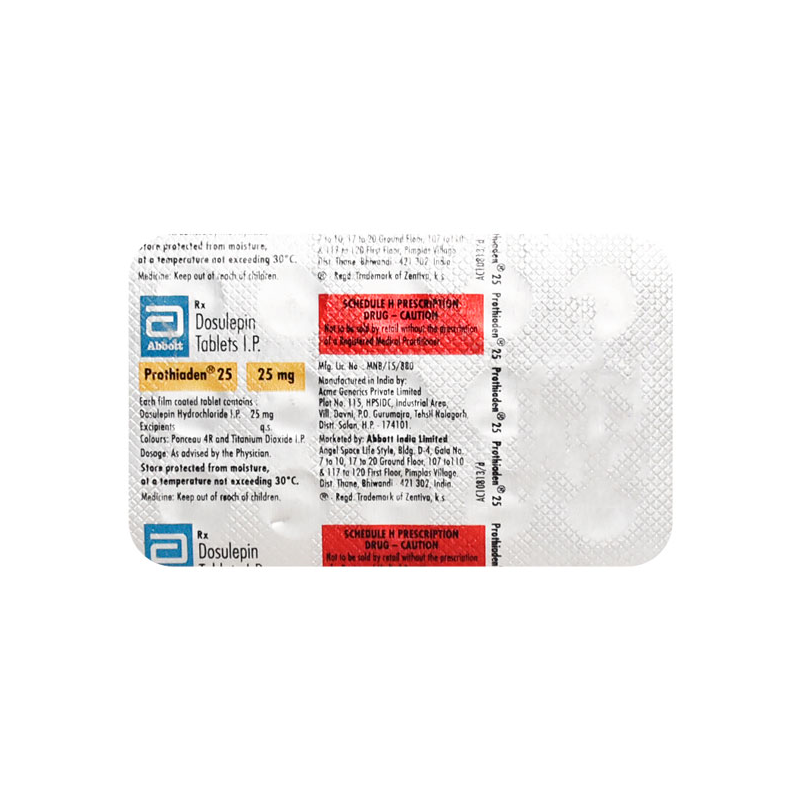
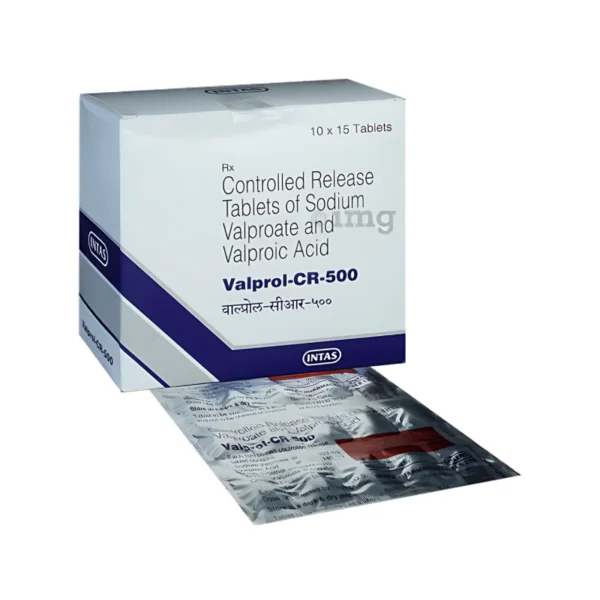
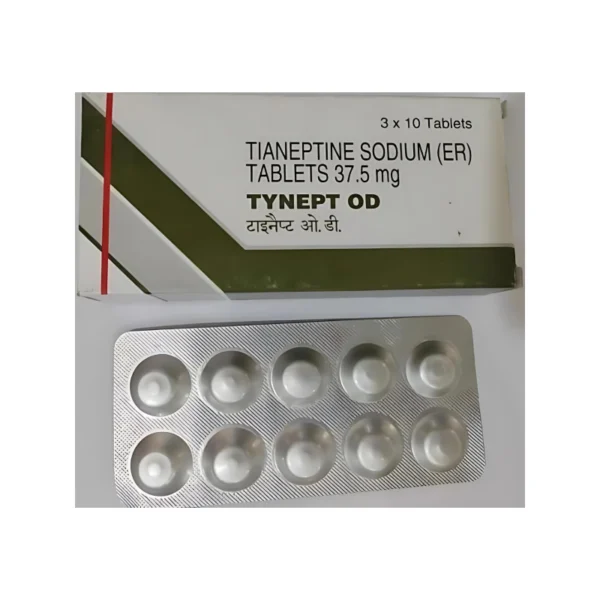


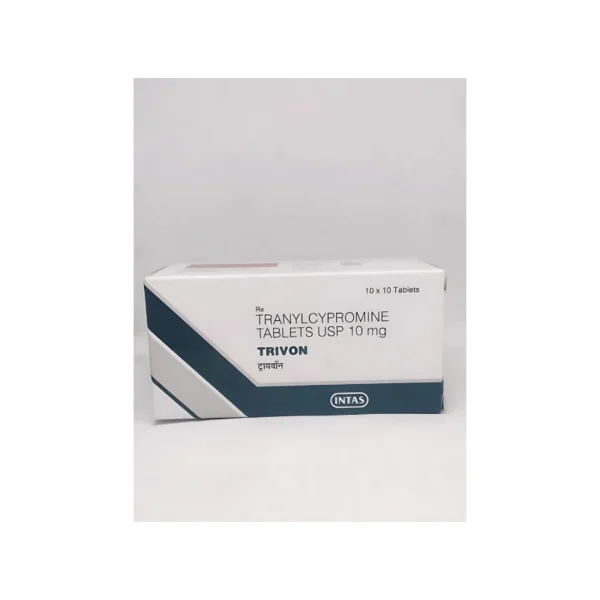
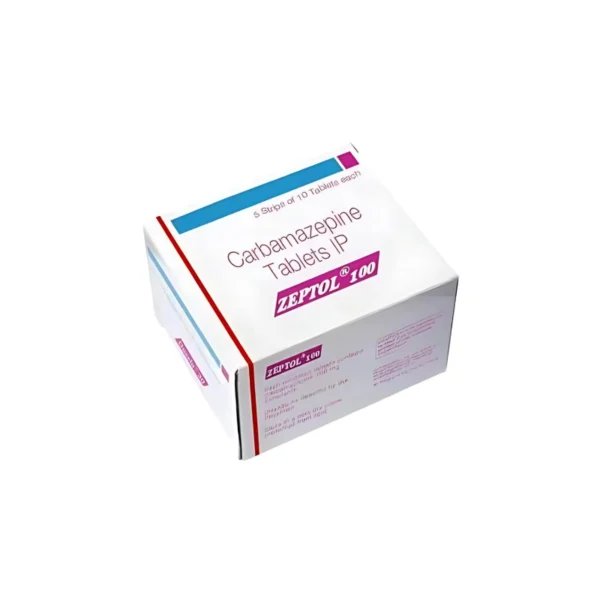
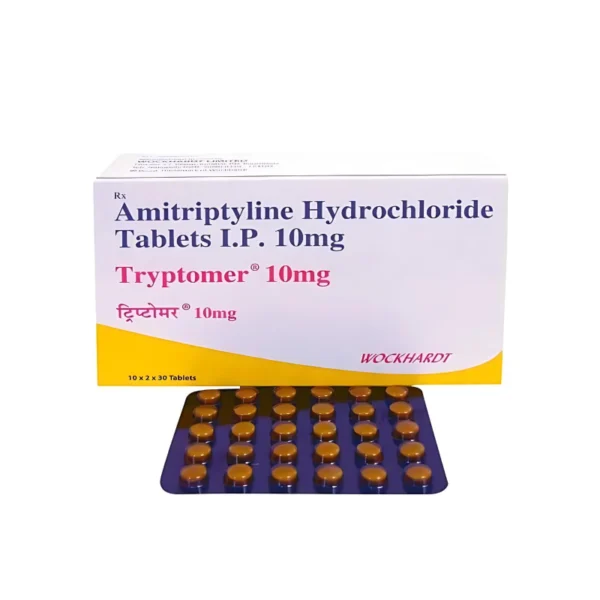
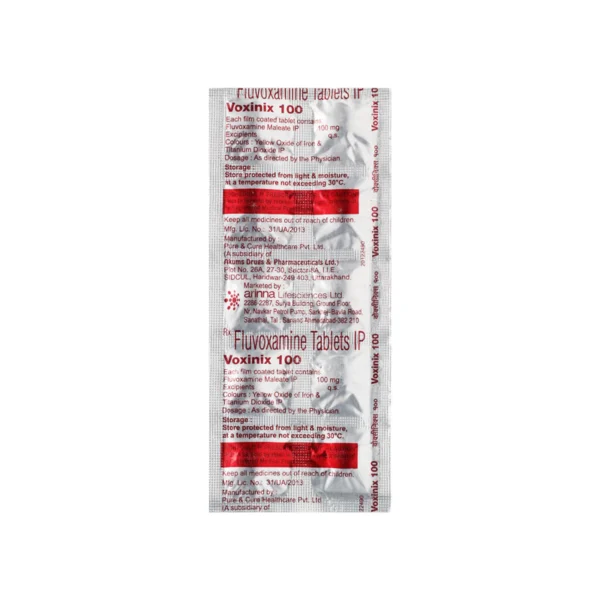
Reviews
There are no reviews yet.